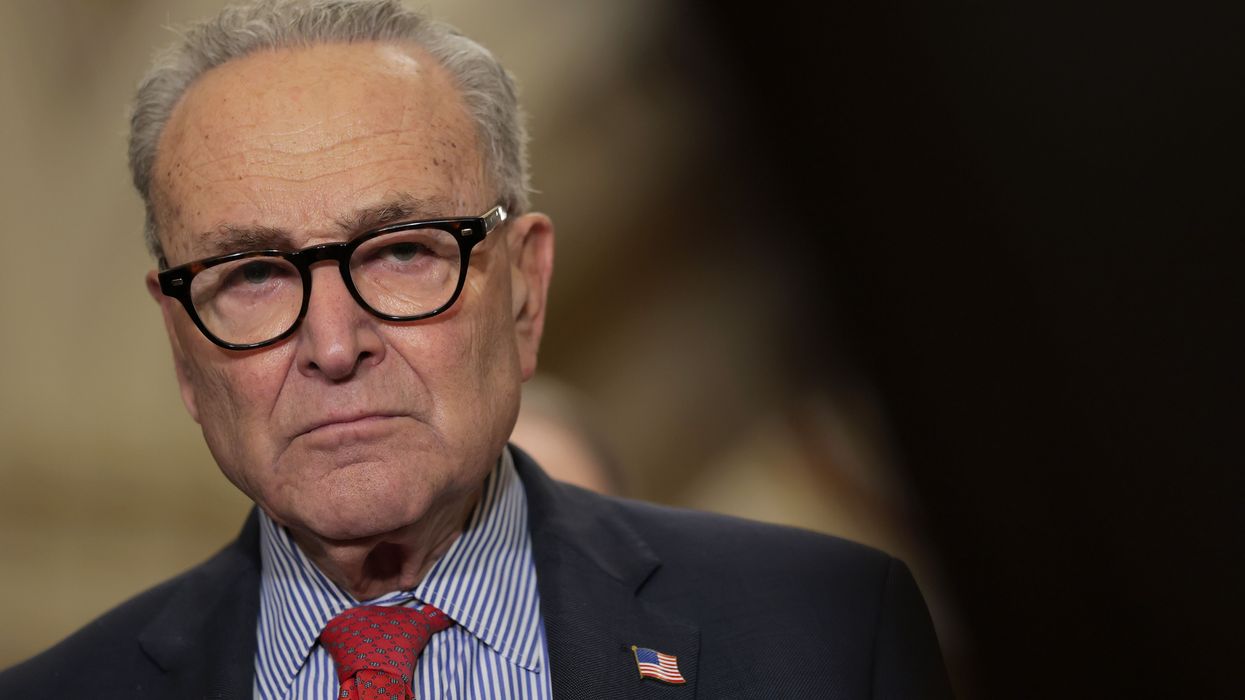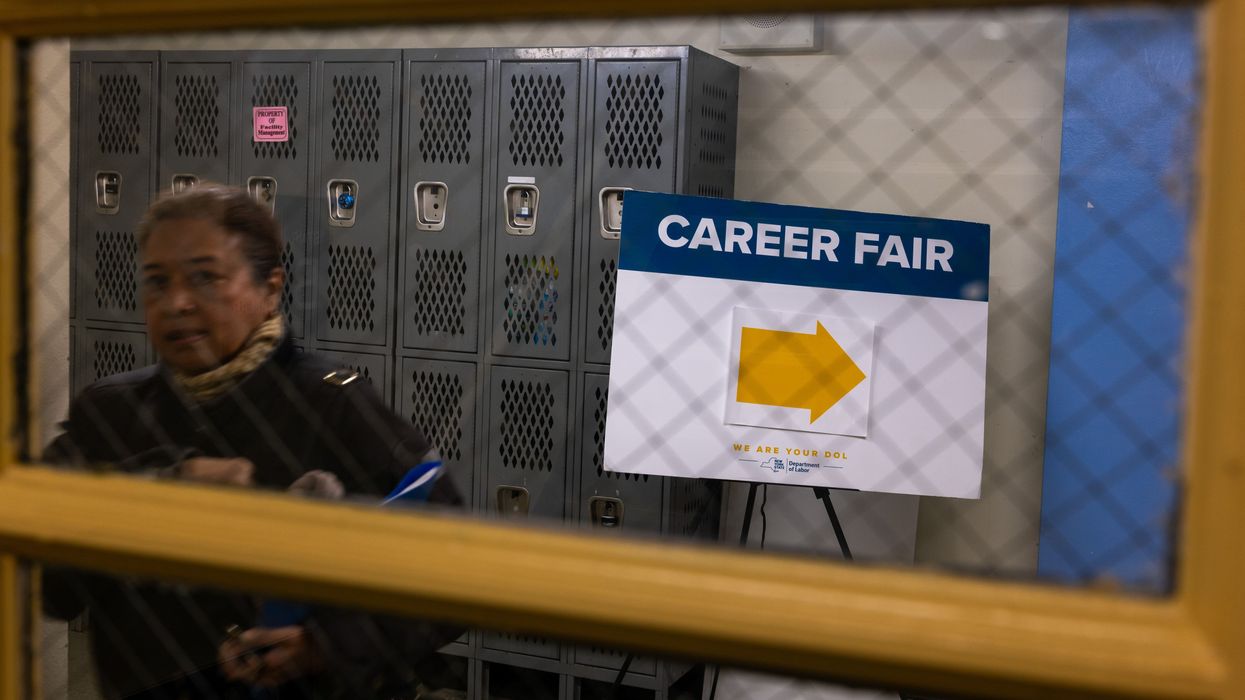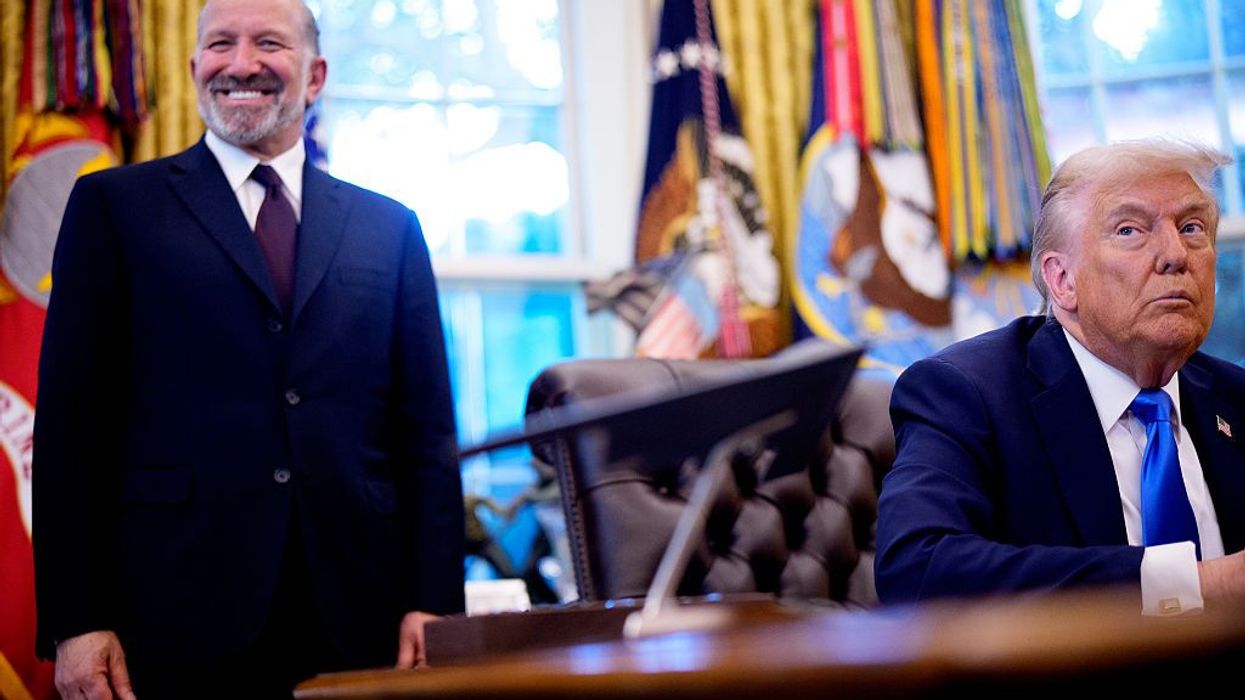December, 01 2009, 07:34pm EDT
For Immediate Release
Contact:
Lea
Radick,
Communications Officer, USCBL, Phone: +1 (301) 891-3002,
E-mail: lradick@handicap‑
Zach
Hudson,
Coordinator, USCBL, Phone: +1 (917) 860-1883,
E-mail: zhudson@handicap‑
U.S. Reacts to Civil Society Outcry; Corrects Position and Announces Comprehensive Landmine Policy Review
In a statement Tuesday, the head of the U.S. delegation to the
Second Review Conference of the Mine Ban Treaty informed participants that the Obama
administration has begun a comprehensive landmine policy review. In the
statement, the U.S. representative said, "The Administration's decision to
attend this Review Conference is the result of an on-going comprehensive review
of U.S. landmine policy initiated at the direction of President Obama."
CARTAGENA, Colombia
In a statement Tuesday, the head of the U.S. delegation to the
Second Review Conference of the Mine Ban Treaty informed participants that the Obama
administration has begun a comprehensive landmine policy review. In the
statement, the U.S. representative said, "The Administration's decision to
attend this Review Conference is the result of an on-going comprehensive review
of U.S. landmine policy initiated at the direction of President Obama."
The
statement represents a reversal of the position first outlined by Department of
State spokesperson Ian Kelly in response to a reporter's question during a
briefing last Tuesday, November 24. Kelly's original announcement was followed
by a fierce outcry from civil society, non-governmental organizations and the
international community. The United States Campaign to Ban Landmines (USCBL);
its parent organization, the International Campaign to Ban Landmines (ICBL);
and Senator Patrick Leahy and Congressman Jim McGovern all delivered harsh
criticism of the policy position. These censures, along with others, have
continued throughout the Second Review Conference, which opened in Cartagena
this week.
In
reaction to the administration's initial statement that it would not join the
Mine Ban Treaty, Senator Leahy said on the Senate floor Tuesday morning [1
December], "By announcing our intention to join the treaty in Cartagena, this
Administration would have signaled to the rest of the world that the United
States is finally showing the leadership that has been wanting on these
indiscriminate weapons that maim and kill thousands of innocent people every
year...The Administration's approach to this issue up until this past weekend has
been cursory, half-hearted, and deeply disappointing to those of us who
expected a serious, thorough reexamination of this issue. One would hope that
an Administration that portrays itself as a global leader on issues of
humanitarian law and arms control recognizes this is an opportunity."
With
the U.S. announcement in Cartagena of a new corrected position, the USCBL is
guardedly hopeful that progress toward accession to the treaty can once again
resume.
"We're
glad they're here, and that they have formally announced a landmine policy
review. That's a good first step," said Zach Hudson, coordinator of the USCBL.
"Now we need to hear how this review will be conducted. We want to hear about a
structured timeline with a reasonable end date. We want assurances that the
process will also include voices of NATO allies, legislators and the NGO
community that has been working in the trenches on this issue for the past few
decades."
The
USCBL believes that the old arguments used by the U.S. to defer joining the
treaty in 1997 are no longer relevant. Some U.S. officials have cited the
conflicts in Afghanistan and Iraq as reasons for not joining. However, both of
these countries are States Parties to the treaty, and as parties have not only
banned antipersonnel landmines, but are also prohibited from assisting the
United States in any way with use of landmines. The U.S. is also already in de
facto compliance with most of the treaty's provisions. Despite not being a
signatory, the U.S. has not used antipersonnel mines since 1991, has not
exported them since 1992 and has not produced them since 1997.
"We
want to believe the administration will conduct this review with an openness to
joining the treaty," said Steve Goose, the director of the Arms Division at
Human Rights Watch and ICBL spokesperson. "After last week's announcement, we
want to be sure this policy reversal is not just going through the motions to
correct a process that rightly angered many civil society organizations and
U.S. legislators. This is a fresh start, and we are looking forward to closely
collaborating in the review process."
The
United States is currently one of only 39 countries that have not yet joined
the treaty. In the Western Hemisphere, only the U.S and Cuba are non-signatories.
Every other member of NATO except Poland (which has already signed and will
ratify in 2012) are also States Parties to the treaty. While being one of the
first governments to call for the eventual elimination of landmines in the
mid-1990s, the U.S. did not sign the treaty when it opened for signature in
1997. Instead, President Clinton set 2006 as the goal for the United States to
join. President Bush reversed this decision in 2004.
The
U.S. announcement was made during the historic "Cartagena Summit on a Mine Free
World," the Second Mine Ban Treaty Review Conference, taking place November
29-December 4. More than 1,000 people and 120 governments are participating in
this five-year review conference, including dozens of foreign ministers and defense
ministers. The U.S. is attending the conference as an observer.
The United States Campaign to Ban Landmines is a coalition of non-governmental organizations working to ensure that the U.S. comprehensively prohibits antipersonnel mines--by banning their use in Korea--and joins the 1997 Mine Ban Treaty, as more than 160 nations have done. It is the national affiliate of the International Campaign to Ban Landmines (ICBL), founded in New York in 1992 and recipient of the 1997 Nobel Peace Prize Laureate together with former ICBL coordinator Ms. Jody Williams of Vermont. We also call for sustained U.S. government financial support for mine clearance and victim assistance.
LATEST NEWS
'Why Is This Hard?' Schumer Won't Say He Opposes Regime Change in Venezuela
"Twenty-five years ago, Chuck Schumer and Susan Collins both voted to send me and friends to kill and die in Iraq," said US Senate candidate Graham Platner. "Apparently neither of them have learned a thing."
Dec 11, 2025
US Rep. Ro Khanna suggested on Thursday that the top Democrat in the Senate had offered the latest evidence that the party needs "a new generation to lead... with moral clarity and conviction" after Sen. Chuck Schumer refused to denounce the Trump administration's threats of regime change in Venezuela.
"Why is this hard?" asked Khanna (D-Calif.) after Schumer (D-NY), the Senate minority leader, told CNN's Jake Tapper Wednesday evening that "everyone would like" it if Venezuelan President Nicolás Maduro "would flee on his own" instead of stating that the US should not try to force out the South American leader.
When asked point-blank if he disagrees with President Donald Trump's "ultimate goal of regime change in Venezuela," Schumer turned his focus to the lack of clarity in the White House's strategy.
"The bottom line is President Trump throws out so many different things in so many different ways. You don't even know what the heck he's talking about. You know, obviously, if Maduro would just flee on his own, everyone would like that. But we don't know what the heck he's up to when he talks about that," said Schumer. "You cannot say I endorse this, I endorse that when Trump is all over the lot, not very specific and very worrisome at how far he might escalate."
Chuck Schumer won't say if he opposes regime change in Venezuela.
JAKE TAPPER: Do you disagree with President Trump's ultimate goal of regime change in Venezuela?
CHUCK SCHUMER: Look, the bottom line is President Trump throws out so many different things in so many different… pic.twitter.com/kwjWMsBgM8
— Ken Klippenstein (NSPM-7 Compliant) (@kenklippenstein) December 10, 2025
Schumer's response, Khanna suggested, should have been: "Yes, Democrats oppose regime change war in Venezuela. Instead of wasting trillions on endless wars, we must invest in jobs, healthcare, and housing for Americans."
The CNN interview took place hours after the US military seized an oil tanker off the coast of Venezuela in what one think tank called an "illegal" escalation. In recent weeks Trump has claimed he's ordered the airspace above and around Venezuela closed—an action experts said he had no legal authority to take—authorized covert CIA action in the country, and this week said the US plans to "hit ‘em on land very soon," threatening strikes against Venezuela as well as Mexico and Colombia.
The White House has aggressively pushed a narrative about the need to stop the trafficking of fentanyl from Venezuela—despite findings by the Drug Enforcement Administration and the United Nations that the country plays virtually no role in the flow of the drug into the US. At least 87 people have been killed in US military strikes on boats in the Caribbean and eastern Pacific since September—bombings that Defense Secretary Pete Hegseth and Trump have claimed without evidence have targeted "narco-terrorists," but which Latin American officials, the family of one victim, and legal experts have denounced as extrajudicial killings and homicide.
Trump has previously signaled a desire to take control of Venezuela's vast oil reserves.
On November 21, Trump reportedly spoke to Maduro in a phone call and offered him safe passage out of Venezuela if he abdicated power, in the most explicit confirmation that the administration is seeking regime change. A CBS/YouGov poll released two days later found that 70% of Americans oppose any military action in Venezuela.
Labor attorney Benjamin Dictor and Democratic US Senate candidate Graham Platner of Maine were among those who joined Khanna in condemning Schumer's refusal to unequivocally reject the goal of forcing Maduro out through military action.
"Chuck Schumer is so spineless he can’t even affirmatively oppose illegal, unauthorized regime change by military force," said Dictor.
Schumer has called for the passage of a war powers resolution to block the deployment of US forces in Venezuela. As Trump has continued the boat bombings and built up military presence in the Caribbean, two war powers resolutions aimed at stopping the US from striking boats and targets inside Venezuela have failed to pass.
But his refusal to speak out comes two months after journalist Aída Chávez reported that a "senior Democratic staffer" was "discouraging Democrats from coming out against regime change in Venezuela... arguing that opposing Trump and [Secretary of State Marco] Rubio's regime change amounts to supporting Maduro."
After Schumer's interview, Matt Duss of the Center for International Policy joined in calling for "regime change in the Senate Democratic Caucus."
Keep ReadingShow Less
New Unemployment Claims Jump to Highest Level in Months as Trump Economy Teeters
"While President Trump calls affordability a ‘hoax,’ countless families are being forced into impossible tradeoffs every day."
Dec 11, 2025
Federal data released Thursday shows that the number of Americans filing for unemployment benefits surged last week, another indication of growing instability in President Donald Trump's economy as corporations lay off workers en masse and prices continue to rise.
For the week ending December 6, new unemployment claims jumped to 236,000—an increase of 44,000 from the previous week, according to figures from the US Labor Department.
Andrew Stettner, an unemployment insurance expert at The Century Foundation (TCF) noted that new unemployment claims are now at their highest level since early September.
"These totals don’t include an additional 12,732 former federal workers who are also now relying on unemployment benefits, as the number of federal workers on UI has stayed at levels not seen since the pandemic, even after the government shutdown has ended," Stettner said.
"This disappointing news comes on the heels of other troubling labor market data," he continued, pointing to private-sector payroll figures showing the US economy lost 32,000 jobs in November. "With hiring still so weak, it is no surprise that the percentage of workers feeling confident enough to quit their job dropped to its lowest level since the beginning of the pandemic in April 2020. In fact, our polling shows that 27% of Americans said they took on a 'second job, side hustle, or gig work' in the past year to help make ends meet."
The updated unemployment numbers come as Trump is on an economic messaging tour during which he has dismissed the notion that his policies have worsened the country's affordability crisis, calling such claims a Democratic "hoax" even as polling shows Americans—including a significant percentage of his own voters—increasingly blame the president for rising costs groceries and other necessities.
"We inherited the highest prices ever, and we’re bringing them down,” Trump said, falsely, during a stop in Pennsylvania earlier this week.
"We’re crushing it, and you’re getting much higher wages,” the president added, another falsehood.
Survey data released Thursday by The Century Foundation shows that Americans are increasingly skipping meals and doctor visits as prices rise.
"Roughly three in 10 voters delayed or skipped medical care in the past year due to cost, while nearly two-thirds switched to cheaper groceries or bought less food altogether," the group noted in a summary of its findings. "About half tapped into their savings to cover everyday expenses."
Julie Margetta Morgan, president of The Century Foundation, said in a statement that "while President Trump calls affordability a ‘hoax,’ countless families are being forced into impossible tradeoffs every day as a result of Trump’s disastrous policies that are jacking up prices."
"Working-class Americans are living in a different, harsher economy under Trump," Morgan added, "and they feel the impacts of financialization—and the added risks and costs that come with it—most severely."
Keep ReadingShow Less
Trump Economic Approval Hits All-Time Low as White House Official Insists ‘Nothing Bad Is Happening’
“Trump’s claims about inflation are false, and you can go to the grocery store and see it yourself,” said one economist.
Dec 11, 2025
A new poll shows US voters' approval of President Donald Trump's handling of the economy has hit an all-time low, even as the president and his officials insist the economy is the best in the world.
The latest Associated Press-NORC Center for Public Affairs Research poll released Thursday found that only 31% of voters approve of Trump's handling of the economy, the lowest figure in that survey throughout either of his two terms in office. Overall, 68% of voters said that the current state of the economy was "poor."
What's more, Trump's approval rating on the economy among Republican voters now stands at just 69%, a strikingly low figure for a president who has consistently commanded loyalty from the GOP base.
Despite the grim numbers, the president and his administration have continued to say that the US is now in the middle of an economic boom.
During a Thursday morning interview on CNBC, Commerce Secretary Howard Lutnick said that the US now has "the greatest $30 trillion economy in the world."
"We are doing great," Lutnick said. "Nothing bad is happening. Greatness is happening. We grew at 4% GDP! Come on!"
Lutnick: "Jay Powell is too afraid to lead the greatest $30t economy in the world. We should be leading with our front foot. Instead we are always leaning back as if something bad is happening. We are doing great. Nothing bad is happening. Greatness is happening. We're growing 4%… pic.twitter.com/uWqrlwpllE
— Aaron Rupar (@atrupar) December 11, 2025
Lutnick's message echoes the one Trump delivered earlier this week during a rally in Pennsylvania, where he said that voters' concerns about being able to afford basics such as groceries, electricity, and healthcare were a "hoax" concocted by Democrats.
"Prices are coming down very substantially," Trump falsely claimed during his speech. "But they have a new word. You know, they always have a hoax. The new word is affordability."
Trump on the US economy: “I said it the other day. And a lot of people misinterpreted it. They said ‘Oh he doesn’t realize prices are high.’ Prices are coming down very substantially. But they have a new word. You know, they always have a hoax. The new word is affordability.” pic.twitter.com/JkErFnkT1D
— Sahil Kapur (@sahilkapur) December 10, 2025
As NPR reported on Thursday, data shows that the prices of groceries and electricity have continued to rise throughout Trump's second term, directly contradicting his claims that prices are "coming down."
University of Michigan economist Betsey Stevenson told NPR that Trump is playing with fire by making false claims about prices when US consumers can see costs persistently going up.
"Trump's claims about inflation are false, and you can go to the grocery store and see it yourself," Stevenson said.
Even some members of Trump's own party are growing wary of him insisting that America is experiencing an unprecedented economic boom when voters feel otherwise.
Sen. Lisa Murkowski (R-Alaska) told The Hill that Trump's insistence on making happy talk about the economy would not fly with voters.
"You can’t call it a hoax and suggest that people are going to believe it," she said. "What you say matters."
An anonymous Republican senator also told The Hill that they were concerned about the optics of Trump building a massive luxury ballroom in the White House at a time when Americans say they are struggling financially.
"The cost of living just makes life very difficult on people," the senator stressed.
And Sen. Shelley Moore Capito (R-W.Va.) gently pushed back on Trump's messaging by telling CNN that "a lot of people are still having trouble making ends meet" in her state.
Keep ReadingShow Less
Most Popular


